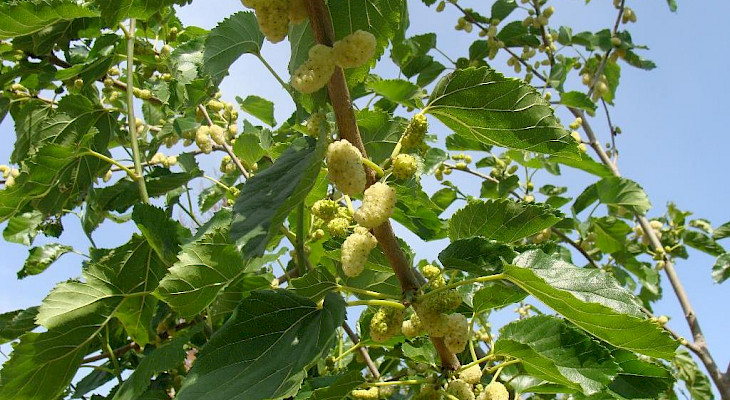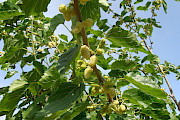The Parliament of Tajikistan has passed a draft law to increase fines for damaging mulberry trees. The corresponding amendments have been made to the Code of Administrative Offenses (CAO) of Tajikistan, reports Asiaplus.tj.
The Chairman of the Environmental Protection Committee under the Government of Tajikistan, Bahodur Sheralizoda, asked deputies to support the amendments to the law.
These additions are aimed, on the one hand, at strengthening environmental protection, and on the other, at protecting mulberry trees, which serve as a food source for silkworms, he noted.
Currently, according to the CAO, the fines for damaging crops, destroying or spoiling grown or harvested agricultural products, damaging mulberry trees, protective forest plantations, and fruit or other trees range from three to five accounting units for individuals and seven to ten units for officials.
The exact increase in fines will be known after the amendments to the Code are adopted.
Importance for Industry and Ecology
Experts say that one of the reasons for stricter control over mulberry plantations is the destruction of these trees in past years.
In his 2021 address to Parliament, President Emomali Rahmon urged relevant authorities to develop sericulture and create new jobs, particularly for women and girls. He ordered the exemption of mulberry plantations from the unified land tax for 10 years and instructed the start of silkworm cocoon processing.
Over the past 30 years, Tajikistan’s production of silkworm cocoons has decreased by almost 12 times. According to statistics, in 1991 the country produced 4,528 tons of cocoons, while in the first eight months of 2024, preliminary data from the Statistics Agency showed a harvest of just 361 tons.
Experts from Pillai Tochik attribute the failure of the program to a decline in mulberry plantations. In recent years, due to a lack of control, many mulberry trees growing along fields and roads were entirely cut down.

Mulberry trees along the road in Tajikistan
Photo: Asia-Plus
Some mulberry plantations, which passed into private hands, were felled and sold as firewood. Local authorities failed to allocate land for new mulberry plantations or provided infertile plots where trees could not grow.
According to the program for the development of sericulture and mulberry silkworm cocoon processing, Tajikistan aims for sustainable development of the sector and plans to increase cocoon production to 1,867 tons by 2027. The program provides for the planting of more than 4.3 million mulberry trees across the country.
Currently, according to statistics, the total area of mulberry plantations in Tajikistan is about 5,500 hectares.
In addition to their economic value, mulberry trees benefit the environment by preventing soil erosion, curbing dust storms, and providing berries used as food and medicine.
Strengthening control over the preservation and expansion of mulberry plantations supports the development of sericulture, environmental conservation, and food security.
CentralasianLIGHT.org
October 16, 2024




